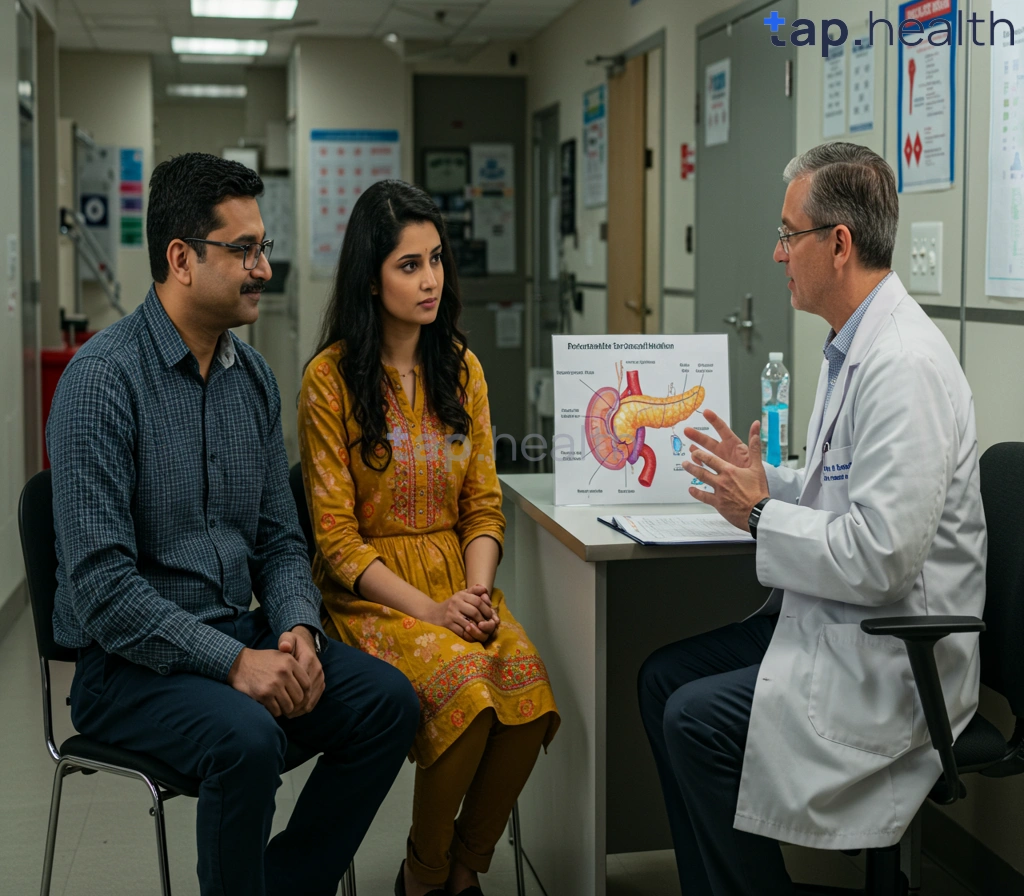Table of Contents
- Mayo Clinic’s Diabetes Drug: A New Hope for Ovarian Cancer?
- Groundbreaking Research: Diabetes Medication Shows Promise Against Ovarian Cancer
- Ovarian Cancer Treatment: Exploring the Potential of a Diabetes Drug
- Mayo Clinic’s Cancer Breakthrough: Repurposing Diabetes Medication for Ovarian Cancer
- Is a Diabetes Drug the Future of Ovarian Cancer Treatment?
- Frequently Asked Questions
- References
Exciting news in the fight against ovarian cancer! Recent research from the Mayo Clinic has revealed a potential game-changer: a diabetes drug showing remarkable promise in combating this aggressive disease. We’re diving deep into the details of this Mayo Clinic Breakthrough: Diabetes Drug Shows Promise Against Ovarian Cancer, exploring the study’s findings and what they mean for patients and the future of ovarian cancer treatment. Could this be the breakthrough we’ve been waiting for? Let’s uncover the science behind this hopeful development and discuss its potential impact.
Mayo Clinic’s Diabetes Drug: A New Hope for Ovarian Cancer?
While research shows women with diabetes face a 40% higher risk of heart disease compared to men with diabetes — a significant health concern in itself — a groundbreaking development from the Mayo Clinic offers a glimmer of hope in a different, equally devastating area: ovarian cancer. This research focuses on repurposing a diabetes medication to potentially treat this aggressive form of cancer prevalent globally, including across Indian and tropical countries. The implications are vast, particularly considering the high incidence rates of both diabetes and ovarian cancer in these regions.
Early Findings & Potential Impact
The Mayo Clinic’s study suggests that this diabetes drug may effectively target ovarian cancer cells, exhibiting promising results in preliminary trials. While still in its early stages, this research represents a significant leap forward in finding new treatment options. This is especially crucial in regions where access to advanced cancer care may be limited, impacting treatment outcomes and survival rates for women diagnosed with ovarian cancer. The potential for a repurposed drug also opens avenues for faster and more affordable treatment access.
Next Steps & Regional Considerations
The next phase of research will be vital in confirming these early findings and determining the drug’s effectiveness and safety in larger clinical trials, potentially including diverse populations from Indian and tropical countries. The unique demographic and epidemiological profiles of these regions must be considered to ensure the research results are applicable and beneficial to women in these communities. Further research into the interplay between diabetes and ovarian cancer risk within these specific populations will also be crucial. Understanding the connection between diabetes and cancer risk is important; you can learn more by reading our article on Does Diabetes Cause Cancer?.
A Call to Action
This promising research underscores the importance of ongoing awareness and early detection of both diabetes and ovarian cancer in Indian and tropical countries. Regular health checkups and discussions with healthcare providers are essential for women in these regions. Staying informed about the latest advancements in cancer research and advocating for improved access to healthcare can make a real difference in improving the lives of women affected by these diseases. For those managing diabetes, it’s also crucial to consider safe and effective ways to support overall health. Learn more about Safe and Effective Dietary Supplements for Diabetes Care.
Groundbreaking Research: Diabetes Medication Shows Promise Against Ovarian Cancer
Mayo Clinic researchers have unveiled promising results in the fight against ovarian cancer, a disease disproportionately affecting women in Indian and tropical countries. Their groundbreaking study demonstrates that a commonly used diabetes medication shows significant potential in combating this aggressive cancer. This development offers a beacon of hope, particularly considering the high incidence of ovarian cancer in these regions.
Understanding the Significance
The research highlights the medication’s ability to target specific cancer cells, potentially leading to more effective treatment options. While further research is needed to confirm these findings and determine the optimal treatment approach, the initial results are incredibly encouraging. This is especially relevant given that ovarian cancer often presents late, leading to more challenging treatment scenarios. Early detection and access to effective therapies are crucial for improving patient outcomes, especially in regions with limited healthcare resources.
Lifestyle and Prevention
It’s important to remember that a significant portion of Type 2 diabetes cases, which can contribute to various health complications, including increased cancer risk, are preventable. Up to 80% of Type 2 diabetes cases can be delayed or prevented through lifestyle changes such as maintaining a healthy weight, adopting a balanced diet, and engaging in regular physical activity. Learn more about preventing Type 2 diabetes and its associated risks. Understanding the impact of diabetes on overall health is crucial, and learning about how diabetes can affect fertility, as described in How Does Diabetes Affect Fertility? Insights and Tips, can help individuals make informed decisions about their health.
Call to Action for Indian and Tropical Countries
This breakthrough underscores the urgent need for increased awareness and improved access to early detection and treatment of ovarian cancer in India and tropical countries. Investing in research, improving healthcare infrastructure, and promoting healthy lifestyle choices are crucial steps towards reducing the burden of this devastating disease. Let’s work together to empower women and improve their health outcomes. Furthermore, exploring how new technologies can improve diabetes lifestyle management, as detailed in How Can New Technological Advances Improve Diabetes Lifestyle?, could have significant implications for preventing complications associated with diabetes.
Ovarian Cancer Treatment: Exploring the Potential of a Diabetes Drug
A Promising New Avenue in Ovarian Cancer Treatment
Recent breakthroughs from the Mayo Clinic suggest a potential game-changer in ovarian cancer treatment: repurposing a diabetes medication. This exciting development offers a new avenue of hope, particularly crucial in regions like India and other tropical countries where access to advanced cancer care can be limited. The research highlights the drug’s effectiveness in combating the disease, opening doors for more accessible and potentially less toxic treatment options.
Understanding the Connection and Regional Relevance
The connection between diabetes and kidney disease is well-established. Nearly 30% of individuals with diabetes develop diabetic nephropathy, a serious kidney complication. This high prevalence of diabetes-related kidney issues in many Indian and tropical countries underscores the importance of exploring treatments that address comorbidities. The potential of this diabetes drug to also impact ovarian cancer treatment is particularly significant given the overlapping health challenges in these regions. This offers a potential dual benefit, addressing both prevalent diabetes-related complications and a serious cancer type. For more information on managing diabetes-related kidney issues, you might find Which Diabetes Drug is Best for Diabetics with Kidney Disease? helpful.
Looking Ahead: Hope for the Future
This research from the Mayo Clinic represents a significant step forward in ovarian cancer treatment. Further studies are crucial to confirm these initial promising results, but the potential implications for improved healthcare access and outcomes in India and other tropical countries are substantial. Stay informed about ongoing clinical trials and advocate for increased research funding in these areas. Early detection and access to effective treatment are critical in improving survival rates for ovarian cancer, and this innovative approach holds significant promise. The complexities of managing diabetes alongside other health concerns, such as the use of oral steroids, are also important to consider. For more details on this, see Can Diabetics Take Oral Steroids?
Mayo Clinic’s Cancer Breakthrough: Repurposing Diabetes Medication for Ovarian Cancer
A New Hope for Ovarian Cancer Patients in India and Tropical Countries
The fight against ovarian cancer, a disease disproportionately affecting women in many Indian and tropical countries, may have received a significant boost. Mayo Clinic researchers have made a groundbreaking discovery: a repurposed diabetes medication shows immense promise in combating this deadly disease. This is particularly significant given that 50% of diabetes cases worldwide remain undiagnosed, according to the International Diabetes Federation, highlighting the urgent need for increased awareness and accessible healthcare in these regions.
This breakthrough offers a beacon of hope, especially considering the challenges faced in accessing advanced cancer treatments in many parts of India and tropical nations. The repurposing of an existing diabetes drug could potentially reduce the cost and improve accessibility of effective ovarian cancer treatment, making it a game-changer for countless patients. Early detection and access to affordable, effective treatment remain crucial factors in improving survival rates. The connection between diabetes and this new treatment highlights the importance of understanding and managing diabetes, a topic explored further in Can You Get Rid of Diabetes? – Tap Health.
Understanding the Implications for India and Tropical Countries
The implications of this research are far-reaching. This discovery could revolutionize ovarian cancer treatment strategies in regions where resources are often limited. Further research and clinical trials are needed to fully understand the efficacy and long-term effects of this repurposed medication, specifically within the diverse populations of India and tropical countries. However, this initial breakthrough provides a powerful catalyst for increased investment in research, improved healthcare infrastructure, and heightened awareness about ovarian cancer prevention and early detection within these regions. For those interested in learning more about managing and potentially reversing diabetes, a related article, How to Reverse Diabetes Permanently, offers valuable insights.
Taking Action: The Next Steps
This exciting development underscores the importance of early detection and access to quality healthcare. For women in India and tropical countries, staying informed about ovarian cancer symptoms and seeking timely medical attention is paramount. Advocating for improved healthcare access and supporting research initiatives focused on affordable cancer treatments are crucial steps towards a healthier future. Let’s work together to ensure that this breakthrough translates into tangible improvements in the lives of women affected by ovarian cancer.
Is a Diabetes Drug the Future of Ovarian Cancer Treatment?
A groundbreaking discovery from the Mayo Clinic suggests a potential game-changer in ovarian cancer treatment. Research indicates that a diabetes medication shows promising results in combating this devastating disease. This is particularly significant considering the high prevalence of diabetes, especially among the working-age population (20-64 years) in India and tropical countries. According to the International Diabetes Federation’s Diabetes Atlas, 61% of people with diabetes fall within this age group, a demographic significantly impacted by ovarian cancer.
Understanding the Implications for India and Tropical Countries
This research offers a beacon of hope in regions like India and other tropical countries where access to advanced cancer treatments can be limited. The potential repurposing of a readily available diabetes drug could revolutionize ovarian cancer care, making effective treatment more accessible and affordable. Early detection and access to appropriate therapies are crucial, and this breakthrough could significantly improve outcomes. The connection between diabetes and this potential treatment highlights the importance of understanding diabetes itself; for example, you might be interested in reading more about Can You Develop Diabetes After Pregnancy?, a question relevant to many women.
What This Means for You
While further research is needed, this development underscores the importance of regular health checkups and open communication with your healthcare provider. If you have concerns about ovarian cancer, especially if you have diabetes, discuss these findings with your doctor. Stay informed about the latest medical advancements and advocate for your health. This promising research may lead to new treatment options, significantly impacting the lives of those affected by this challenging disease across India and the tropical regions. Early detection and proactive healthcare are key to improving outcomes. It’s also important to understand the various factors that can contribute to diabetes. For instance, Can Drugs Cause Type 1 Diabetes? is a question many people have.
Frequently Asked Questions on Mayo Clinic Breakthrough
Q1. What is the key finding of the Mayo Clinic research?
Mayo Clinic research shows that a diabetes drug effectively targets ovarian cancer cells in preliminary trials. This offers a potential new, faster, and more affordable treatment option.
Q2. Why is this research particularly significant for India and other tropical countries?
India and tropical countries have high rates of both diabetes and ovarian cancer, coupled with limited access to advanced healthcare. This repurposed drug could significantly improve treatment options in these regions.
Q3. What are the next steps in this research?
Larger clinical trials are needed to confirm the findings and assess the drug’s effectiveness in diverse populations from regions with high rates of both diseases. This will ensure the results are applicable globally.
Q4. How can early detection help in managing diabetes and ovarian cancer?
Early detection of both diabetes and ovarian cancer is crucial for improving treatment outcomes. Regular health checkups and increased awareness are essential for early diagnosis and intervention.
Q5. What is the overall implication of this research for women’s health?
This research highlights the need for continued investment in research, improved healthcare access, and increased awareness to improve the lives of women affected by diabetes and ovarian cancer.
References
- A Practical Guide to Integrated Type 2 Diabetes Care: https://www.hse.ie/eng/services/list/2/primarycare/east-coast-diabetes-service/management-of-type-2-diabetes/diabetes-and-pregnancy/icgp-guide-to-integrated-type-2.pdf
- Towards Transparent and Accurate Diabetes Prediction Using Machine Learning and Explainable Artificial Intelligence : https://arxiv.org/pdf/2501.18071





